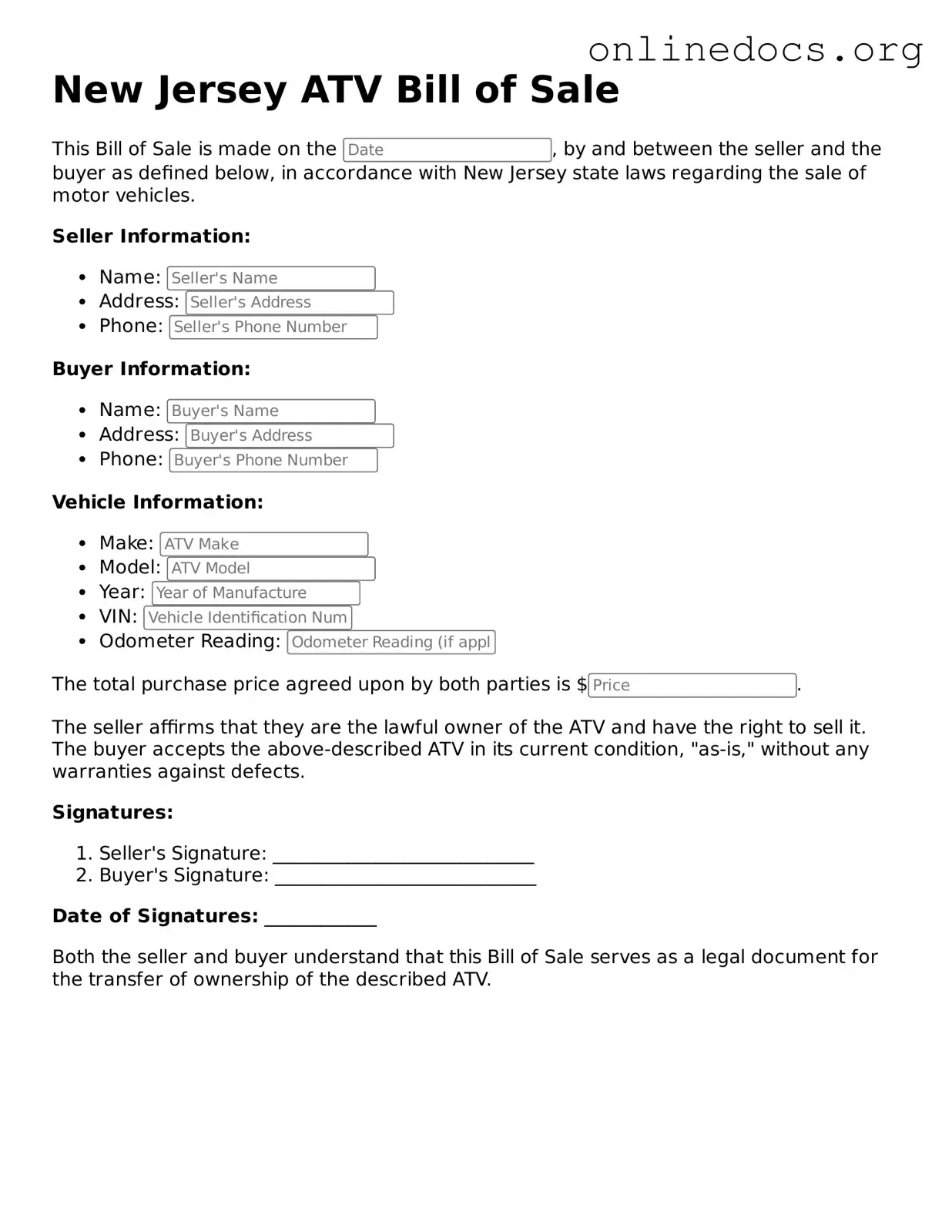Filling out the New Jersey ATV Bill of Sale form correctly is crucial for ensuring a smooth transaction. One common mistake is failing to provide complete information about the ATV. Buyers and sellers often overlook details such as the vehicle identification number (VIN), make, model, and year. Omitting any of this information can lead to confusion or disputes later on.
Another frequent error is not including the purchase price. This detail is essential for both parties and for future registration purposes. If the price is left blank, it may raise questions about the legitimacy of the sale. Furthermore, buyers should ensure that the price reflects the fair market value of the ATV to avoid potential tax issues.
Signatures are vital on the Bill of Sale. A common mistake is neglecting to obtain both parties' signatures. Without signatures, the document may not be legally binding. Additionally, both the buyer and seller should ensure they sign and date the form in the appropriate sections to validate the transaction.
People often forget to include the date of the sale. This is an important detail that establishes when the transaction took place. Without a date, it could complicate matters if there are any disputes or if the buyer needs to register the ATV in the future.
Inaccurate or incomplete contact information is another mistake. Both parties should provide their full names, addresses, and phone numbers. This information is crucial for record-keeping and for any follow-up communications that may be necessary after the sale.
Some individuals fail to check for any liens on the ATV. If the vehicle is still under a loan or has outstanding debts, the seller must resolve these issues before completing the sale. Buyers should always verify that the seller has the legal right to sell the ATV to avoid complications down the line.
Not keeping a copy of the Bill of Sale is a mistake that many make. Both parties should retain a copy for their records. This document serves as proof of ownership and can be important for future transactions or legal matters.
Another oversight is neglecting to review the form for errors before submission. Simple mistakes, such as typos or incorrect information, can lead to significant problems. Taking the time to double-check the document can save both parties from future headaches.
Lastly, some people do not understand the importance of notarization. While notarization is not always required for a Bill of Sale in New Jersey, having it notarized can add an extra layer of protection for both parties. It can help verify the identities of the individuals involved and provide additional assurance in case of any disputes.
